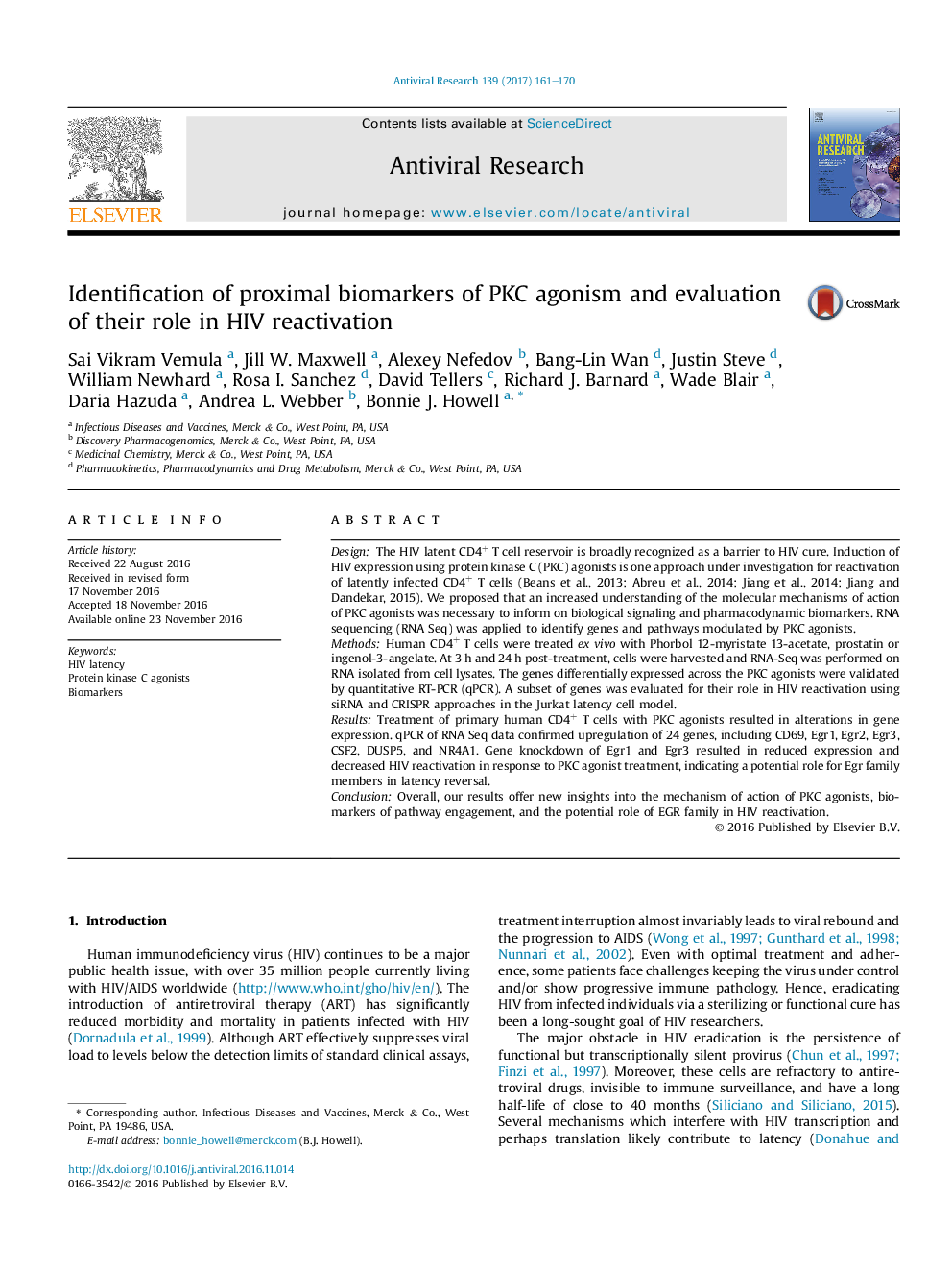| کد مقاله | کد نشریه | سال انتشار | مقاله انگلیسی | نسخه تمام متن |
|---|---|---|---|---|
| 5551892 | 1557804 | 2017 | 10 صفحه PDF | دانلود رایگان |

- RNASeq of PKC agonists in human CD4 T cells reveals altered signalling pathways and time-dependent changes in gene expression.
- Several biomarkers of PKC agonisms were identified and validated in human CD4+ T cells and in in vivo rat studies.
- Egr family members have a role in PKC mediated latent HIV-1 reactivation.
DesignThe HIV latent CD4+ T cell reservoir is broadly recognized as a barrier to HIV cure. Induction of HIV expression using protein kinase C (PKC) agonists is one approach under investigation for reactivation of latently infected CD4+ T cells (Beans et al., 2013; Abreu et al., 2014; Jiang et al., 2014; Jiang and Dandekar, 2015). We proposed that an increased understanding of the molecular mechanisms of action of PKC agonists was necessary to inform on biological signaling and pharmacodynamic biomarkers. RNA sequencing (RNA Seq) was applied to identify genes and pathways modulated by PKC agonists.MethodsHuman CD4+ T cells were treated ex vivo with Phorbol 12-myristate 13-acetate, prostatin or ingenol-3-angelate. At 3 h and 24 h post-treatment, cells were harvested and RNA-Seq was performed on RNA isolated from cell lysates. The genes differentially expressed across the PKC agonists were validated by quantitative RT-PCR (qPCR). A subset of genes was evaluated for their role in HIV reactivation using siRNA and CRISPR approaches in the Jurkat latency cell model.ResultsTreatment of primary human CD4+ T cells with PKC agonists resulted in alterations in gene expression. qPCR of RNA Seq data confirmed upregulation of 24 genes, including CD69, Egr1, Egr2, Egr3, CSF2, DUSP5, and NR4A1. Gene knockdown of Egr1 and Egr3 resulted in reduced expression and decreased HIV reactivation in response to PKC agonist treatment, indicating a potential role for Egr family members in latency reversal.ConclusionOverall, our results offer new insights into the mechanism of action of PKC agonists, biomarkers of pathway engagement, and the potential role of EGR family in HIV reactivation.
Journal: Antiviral Research - Volume 139, March 2017, Pages 161-170